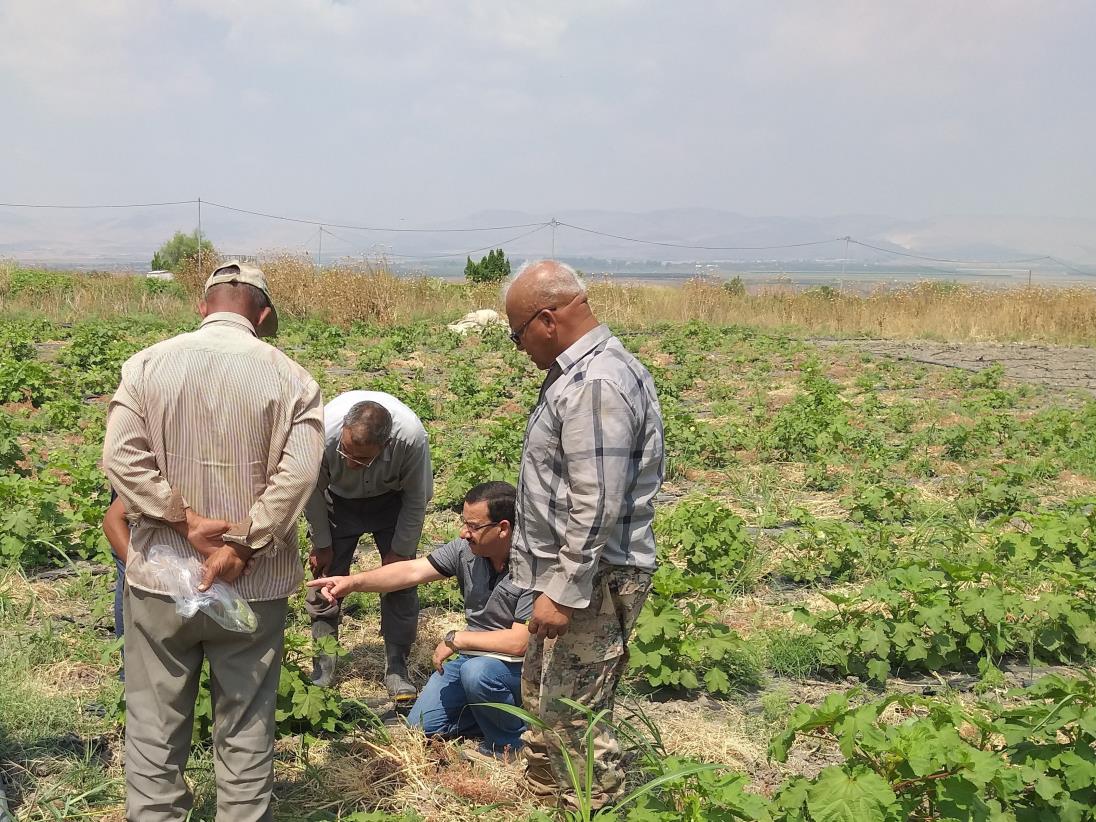Yousef Assi: “After participating in the farmer field school, I learned the best practices”

Yousef Assi (kneeling down) in the field during the FFS sessions.
Yousef Assi, a farmer from Al Mashare village in the Northern Jordan Valley, strived to improve his agricultural products to meet market demand and make more profit. He joined the Farmer Field School (FFS) with other farmers to learn about the usage of pesticides and fertilizers, as well as new irrigation skills.
“Before joining the FFS, I used to randomly irrigate the field for a fixed number of hours without knowing the optimum amount of water to use for irrigation and without taking into consideration the age of the plant, side effects of applying extra amount of water that negatively effects the rooting system and growth of plants,” Assi said.
“After participating in the farmer field school and under the supervision of the facilitators, I learned the best practices of irrigation scheduling, time and volume, which saved around 40 percent of water and enhanced the plant growth,” added Assi.
The Food and Agriculture Organization of the United Nations (FAO) established the FFS targeting small farmers to promote learning through experimentation, where weekly group meetings are held under the guidance of the FFS facilitators. Two FFS have been established in 2019; one for peppers and another for okra, and after last year’s successful FFS results, the farmers requested to expand the FFS’s to other crops. Therefore, the project has introduced four new FFS for citrus, potato, grape and eggplant.
Eighty-seven farmers have participated in the FFS and have attended 42 meetings, of which 37 were held during the COVID-19 period taking in account the needed safety measures. The main topics have focused on good agricultural practices, such as Irrigation Water Management, good harvesting practices and finally the usage of fertilizers and pesticides.
Regarding the usage of fertilizers and pesticides, Yousef said that the amount of pesticides used and number of applications have been decreased up to 50%. As the FFS trained them on the best pesticide practices according to the actual pest situation in the field.
Moreover, the developed FFS in Northern Jordan Valley is part of the regional project “Implementing the 2030 Agenda for water efficiency/productivity and water sustainability in NENA countries” activities in Jordan, funded by the Swedish International Development Cooperation Agency (Sida). The project sets a proper framework for implementing the 2030 Agenda for water efficiency and productivity (SDG 6.4) through three major work packages: (i) establishing an international standard water accounting system, (ii) implementing a series of interventions to increase water efficiency and productivity, and (iii) ensuring that higher efficiency/productivity achievements for the 2030 time horizon are attained sustainably.
